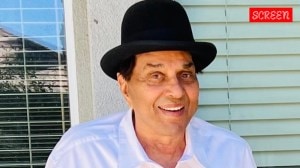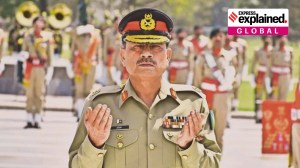Malaysia eyes slice of karate history
Malaysia has a chance to write its name in the Asian Games history books when karate competition begins.
Malaysia has a chance to write its name in the Asian Games history books when the karate competition begins on Wednesday,as Japan defends its pride as the sport’s homeland.
If Puvaneswaran Ramasamy wins a medal in the 55kg “kumite (sparring)”,he will become the first fighter to climb the podium at five straight Asian Games.
There have been seven athletes to achieve such a feat in any sports.
The Kuala Lumpur practitioner,35,who enjoys watching martial arts films starring Jackie Chan and Bruce Lee,has one gold,one silver and two bronzes from four Asian Games since 1994 when karate made its debut.
He won the 55kg title in Busan in 2002 and finished runner-up at the last 2006 Asian Games in Doha. He also grabbed a bronze in the 60kg in 1994 and 1998.
The first day of the three-day karate competition also sees Jin Keat Ku and Lee Lee Lim,also both 35,strive to win their first gold medal in the men’s and women’s individual “kata”,or demonstration of forms.
Ku took a bronze in 2002 and went one better in 2006. Lim has medalled in the last three Asian Games — the silver in 2002 and a bronze each in 1998 and 2006.
Japan have been erratic in kumite but monopolised kata titles for both sexes.
Itaru Oki aims to retain the men’s kata title for Japan following his third place finish at the world championships in Belgrade last month. Oki was the only Asian to finish in the top seven there.
In the women’s kata,Asian champion Rika Usami competes after taking a bronze in Belgrade.
On Thursday,Japan’s 2004 world champion Shinji Nagaki,who was third in Belgrade,competes in the men’s 67kg kumite.
Li Hong,who became China’s first world champion when she won the women’s 50kg title in Belgrade,is in action on Wednesday.
Japan have faced increasing competition since winning nine out of 11 titles in 1994.
In 2006,their haul stood at just four against three for Iran and two for Kuwait. Vietnam,Taiwan,Kazakhstan and Uzbekistan won one each.
Karate has been nutured in the Japanese island of Okinawa over centuries and developed through interaction with its East Asian brothers,China’s wushu and taekwondo of Korea.
Its popularity exploded worldwide after World War II with American GIs bringing their karate skills back home after duty in Okinawa and elsewhere in Japan.



- 01
- 02
- 03
- 04
- 05




























